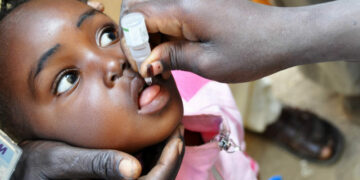On September 9, 2021, the world marked the first anniversary of the International Day to Protect Education from Attacks. The United Nations General Assembly in 2020 set aside the day to draw attention to attacks on students, teachers, and education institutions.
Fundamentally, the day seeks to draw ‘attention to attacks on students, teachers, and educational institutions during armed conflict, the use of schools for military purposes, as well as efforts aimed at promoting and protecting the right to education and facilitating the continuation of education in armed conflict, including the Safe Schools Declaration’.
Today is yet another opportunity for the world to reflect on the attacks on schools. This year, Nigeria and the rest of the world will mark the day at a time some primary, secondary schools and, universities, remain shut following attacks by terrorists and strike by the Academic Staff Union of Universities (ASUU) respectively. In FCT and neighbouring states of Nasarawa and Niger for instance, schools are shut over threats to their security. No one can say with certainty when the schools will be re-opened.
As we mark this day, we remember Leah Sharibu, one of the Dapchi schoolgirls and, other students still in captivity. Their offence is daring to seek knowledge.
It is sad to note that Nigeria has an intolerably high number of out-of-school children, with insecurity and the attendant attacks on schools being one of the factors contributing to the steady rise in the number.
From 2014 when Boko Haram abducted 276 girls from Chibok, Borno state, the nation has continued to witness a series of school attacks and abduction. On February 19, 2018, school girls were kidnapped by Boko Haram terrorists in Dapchi town of Yobe State.
On December 11, 2020, no fewer than 300 students of Government Science Secondary School in Kankara, Katsina state, were kidnapped by armed men who stormed the school. The students were released after spending six nights with their abductors On February 17, 2021, bandits kidnapped 27 students at Government Science Secondary School in Kagara, Niger state. The students spent 10 days in the hands of their abductors before they were released.
In the same month of February, armed men stormed Girls Secondary School in Jangebe, Zamfara state, and abducted 279 of the students. The nation also witnessed attacks on the College of Forestry Mechanisation and the Green Field University, both in Kaduna state.
We note that this list is not exhaustive and the common factor in all is that persons who are bent on enthroning ignorance have been consistent in attacking schools in Nigeria.
While Nigeria joins the world to commemorate this day, which must be on a solemn note because of the enormity of the challenges confronting the education sector, we feel obligated to remind the government of the need to prioritise the Safe Schools Initiative.
Launched in 2014 during the World Economic Forum on Africa by a coalition of Nigerian business leaders working with the United Nations Special Envoy for Global Education, former British prime minister Gordon Brown, and the Global Business Coalition for Education and World at School, the Safe Schools Initiative was to ensure that students are not only safe going to school but are also provided with an environment that is conducive for learning, growth and development devoid of fear.
Almost one decade after the launch of the Safe School Initiative, with $30million raised, the dream of a safe school has remained elusive even as ASUU’s strike continues to take its toll on university education.
In the considered view of this newspaper, attacks on school and by implication the education sector is not and should not be limited to actions of terrorists but include government’s unwillingness to implement the agreement reached with ASUU, which is at the heart of the ongoing strike.
As Nigeria joins the global community to mark this day, we salute the courage of all those who against all odds, have continued to soldier on in their resolve to reposition the nation’s education sector.
We remain committed to a world where every child has access to quality education as an indispensable component of a better life. It is in this way that we call on the government and all other critical stakeholders to dismantle the barriers to quality education for all. We must pull together, all the resources needed to protect education from attacks.





